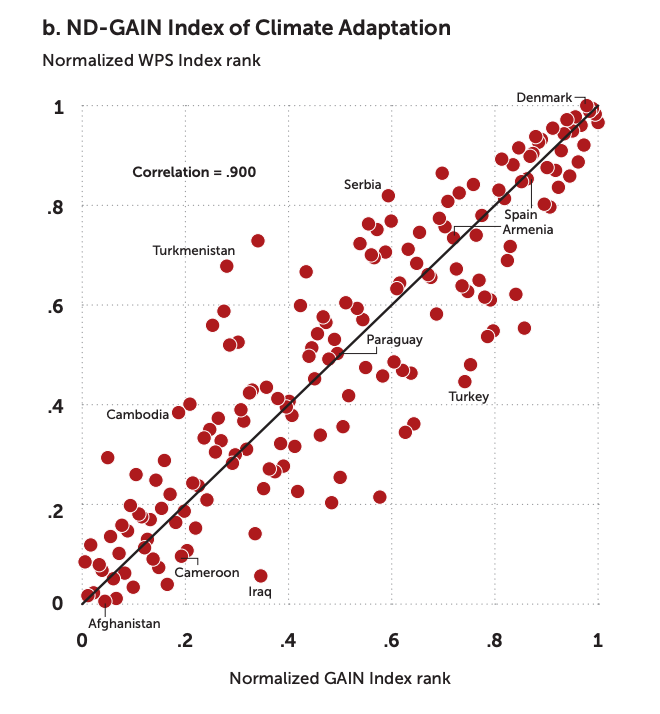The impacts of climate change, conflict, and gender inequality are increasingly intertwined. While there is a growing body of evidence recognizing that environmental and humanitarian crises disproportionately affect women and acknowledging the vital need to meaningfully include women’s voices in prevention and response efforts, research on the relationship between women’s status broadly and countries’ resilience to the impacts of climate change is lacking. To address this gap, we investigated the relationship between women’s status— as measured by the Women, Peace, and Security (WPS) Index—and countries’ preparedness to mitigate and respond to the impacts of climate change, as captured through three indices of climate resilience. Our results reveal strong and significant relationships, suggesting that countries where women are doing well are also those best prepared to respond to climate change.
These findings yield critical policy implications. Decisionmakers working on issues of climate and security must:
- Leverage systematized information and metrics—such as the WPS Index, other indices of gender equality, and climate resilience indices such as the Notre Dame Global Adaptation Initiative Index, the State Resilience Index, and the Environmental Performance Index—to promote data-informed work across the gender-climate-security nexus.
- Amplify women’s voices in climate adaptation efforts and policymaking. This should include local women leaders and women from diverse racial, ethnic, and socioeconomic groups to ensure that interventions are informed by and aligned with local priorities and experiences.
- Scale up efforts to collect data on how climate change poses gender-specific risks and to identify best practices for gender-transformative climate security action.
- Recognize gender, climate, and security as interconnected issues. Progress in one area leads to advancements in the other two. This includes mainstreaming gender-transformative goals with climate security, mitigation, and adaptation policies.
- Ensure that the gender dimensions of security and climate issues are prioritized and integrated into security and climate policy as well as environmental peacebuilding.
- Ground policy and programming on WPS and climate action in evidence-based research conducted by the Intergovernmental Panel on Climate Change (IPCC) and other relevant organizations.

